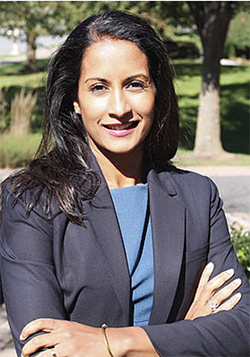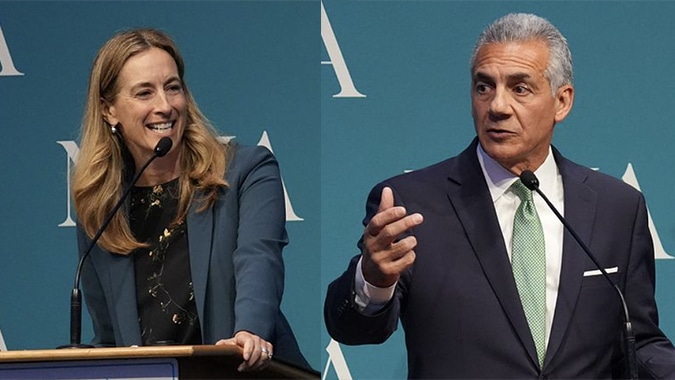
Diversity and inclusion initiatives are increasingly important to corporations as they become more purpose-driven and responsive to their communities, customers, shareholders, and employees concerned about racial and social justice.
Tanuja Dehne, president & CEO of the Geraldine R. Dodge Foundation, told participants at NJBIA’s Diversity & Inclusion Summit on Wednesday that an organization’s D&I journey, however, cannot begin and end with the hiring process.
Businesses and nonprofits that recruit for diversity, but still onboard for assimilation, are undermining their own efforts to bring new talent with fresh ideas and cultural perspectives to their workplaces, C-suites and boardrooms, she said.
“When we have these conversations about D&I, we have to have the through line and continue the conversation,” Dehne said. “You can recruit, recruit, and recruit and check all the boxes ... but if you can’t keep people and you’re not creating an environment where people feel they can share their voices and they are valued, they will leave.”
Assimilation is deeply engrained in corporate culture and unlearning that can be a challenge.
“I’ve had a really amazing 30-year career and I’ve stood on the shoulders of so many, but the reality is that as a woman of color, I have gotten to where I am by assimilating and giving in and doing what everyone else around me was doing,” Dehne said. “And I am acknowledging it. I’m saying it out loud that I have a lot of unlearning to do. We all do.”
Dehne took over the top post at the Gerald R. Dodge Foundation in September 2019 and was tasked with executing a strategic plan that centers on building a more equitable New Jersey by supporting nonprofits working toward social change and helping communities historically excluded from investment and opportunity.
“After the calls for racial justice that have been going on for decades came to the fore last summer after the murder of George Floyd, lots of organizations were making statements, and I’m glad for that,” Dehne said. “But we were ready to actually put actions to words and we leapt forward as an organization to say … we are naming racial equity as a priority.”
The private foundation has funding resources to address the structural and historical barriers to racial equity, but it doesn’t have all the answers, which is why it leans heavily on community leaders, Dehne said.
Businesses and other organizations that are embarking on their own “equity journey” should be prepared for mistakes and setbacks because changing a workplace culture does not happen overnight, she said. The important thing is to lean in and get to work.
“What we have really learned is that it’s so important to call in with compassion and love and meet people where they are, as opposed to calling out and shaming folks,” Dehne said. “It’s human nature – we know what happens when we are shamed. We resort back to our worst selves. And when we are on these difficult journeys, we cannot allow that to happen.”
The two-day NJBIA Diversity & Inclusion Summit, "Stronger Together," continues Thursday. For more information, go here.




